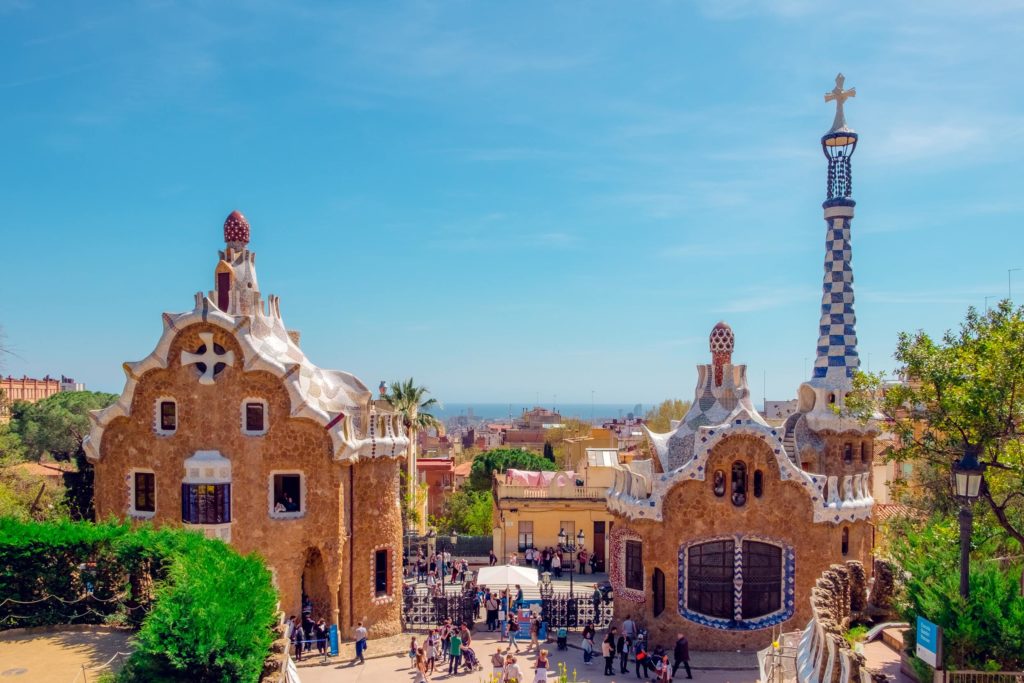Overview of Spain
Spain is located on the Iberian Peninsula in south-western Europe, with Canary Islands off the North African Atlantic coast, the Balearic Islands in the Mediterranean Sea, two large archipelagos and two cities, Ceuta and Melilla, in the North African mainland in addition to several small islands in the Alboran Sea near the Moroccan coast.
Spain’s mainland is bordered to the west and northwest by Portugal and the Atlantic Ocean, to the north and northeast by France, Andorra, and the Bay of Biscay, and to the south and east by the Mediterranean Sea except for a small land boundary with Gibraltar; Spain is the only European country that has a border with an African country (Morocco) and its territory in Africa accounts for almost 5% of its population, located mostly in the Canary Islands but also in Ceuta and Melilla.
Spain is the largest country in Southern Europe and the fourth largest country in the European continent with an area of 505,990 km2. Spain has the sixth largest population in Europe and the fifth largest in the European Union.
General information
- Population: 46423064
- Official language: Spanish
- Area: 505,990 km2
- Ethnic groups: Spanish: 89.9%, Other: 10.1%
- Capital: Madrid
- Government: Unitary parliamentary constitutional monarchy
- GDP (PPP): $1.769 trillion
- Currency: EUR
- ISO code: ES
- Time zone: General: UTC +1 Summer time: UTC+2 Canary Islands: UTC Summer time: UTC +1

Climate and culture
Spain is a democracy organised in the form of a parliamentary government under a constitutional monarchy. It is the world’s fourteenth largest economy by nominal GDP and sixteenth largest by purchasing power parity.
The country generally experiences warm sunny climate with humid wind currents blowing in the west from the Atlantic Ocean.
Spanish culture is highly impacted by Roman culture with a slight addition of local identity, which will differ depending on province. Roman Catholic Church always has had strong presence in Spain. Despite Spain is a western European country – Spain is one of the major Latin countries in Europe, with unique art, architecture and literature.

Immigration and tourism in Spain

The diverse landscapes, geographic location, vibrant culture, popular coastlines, excellent infrastructure, historical legacy and climate of Spain have made its international tourist industry one of the largest in the world. In the last fifty years, international tourism in Spain has progressed to become the second largest in the world in terms of spending, worth about 11% of GDP (in 2016, Spain was visited by 75.3 billion tourists).
Foreigners travelling to Spain for business purposes are able to obtain a residence permit, also called a Spanish Entrepreneur visa or the Spanish Gold Visa. In order to apply for the visa, an investor needs to spend a minimum of 500,000 EUR on a residential real estate or a portfolio of properties.
If you want to relocate to Spain: check available immigration programs here:
Major features
Spain’s geo-strategic position is one of its greatest strengths in terms of investment and access to other important markets: an EU member, a bridge between Europe and Africa and a base for establishing relationships with Latin America and its 1.3 billion consumers, thanks to its trade, cultural and linguistic connections.
Spain can also be proud of its modern and highly efficient infrastructure: it has the most modern and technologically advanced fleet of trains and 2nd largest high-speed network in the world.
If you want to know more about Spain: read here.